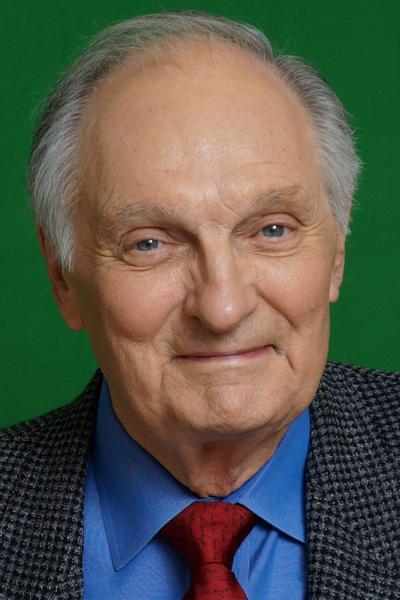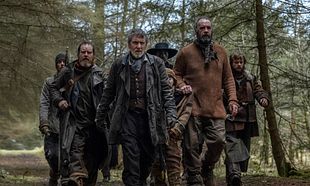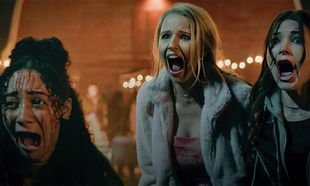Billed as an espionage thriller, Bridge of Spies is very much a talkie that relies on detail and the nuance of language – something in the vein of Tinker Tailor Solider Spy - but this screenplay by the Coen Brothers (drafted in to spruce up Brit playwright Matt Charman’s script), which Spielberg infuses with a touch of schmaltz and sentimentality whenever he can, is a world away from Le Carré’s cold cynicism.
Set in 1957 when the Cold War was approaching its height. The CIA and FBI busy themselves rooting out spies and believe shy painter Rudolph Abel (Rylance, Wolf’s Hall) is one. Insurance lawyer Jim Donovan (Hanks) has the unenviable job of defending the alleged spy and to ensure due process is served, even if the judge (Dakin Matthews), his boss (Alan Alda), and the entire population of America want Abel sentenced to death.
When he successfully has Abel’s sentence commuted to life imprisonment instead of the electric chair, Donovan is approached by the CIA to handle the exchange of Abel for Gary Powers (Austin Stowell), the U2 spy plane pilot shot down over Russia. Complicating matters is that the East German government have imprisoned an American economics student (Will Rogers) and will only swap him for Abel…
America Is Great is a drum that’s beaten over and over again with Hanks’ Donovan a walking Constitution, the embodiment of the myth of American exceptionalism. Spielberg is at pains to highlight the differences between America and the USSR with the former always the more attractive: Powers’ torture by sleep deprivation is cut with the FBI, calling Abel ‘sir’, gently nudging their prisoner awake. While this water is muddied somewhat by a biased judge hampering Donovan’s case so his client is found guilty, and a paranoid CIA agent (Scott Shepherd) willing to let the American student rot in an East German cell if it meant Powers is returned safely, Spielberg Schmaltz and God Save America has the final word.
The deft dialogue, and the performances, are the film’s selling point but perhaps Spielberg took the boring jibes aimed at Lincoln to heart as there as some needless action drop-ins - Powers clinging on to his plummeting plane and Donovan encountering a gang of East German youths as he negotiates the grim East Berlin strasen.
Hanks is solid conveying duelling emotions - appearing strong and in control while at the same time scared and bewildered - and it’s his scenes with Rylance (a cool, internalised performance despite a role that is criminally underwritten) that stand out. But Spielberg ensures there’s plenty to keep tensions up and deflect the inevitable ending once the story leaves that Hanks/Rylance dynamic behind and moves to Berlin. The skilfully played scenes between Donovan, the prickly East German lawyer (Koch) and a shifty KGB (Mikhail Gorevoy), set against the backdrop of a snowy, bombed out East Berlin (beautifully shot by long time Spielberg cinematographer Janusz Kaminski) compensate.



















































































